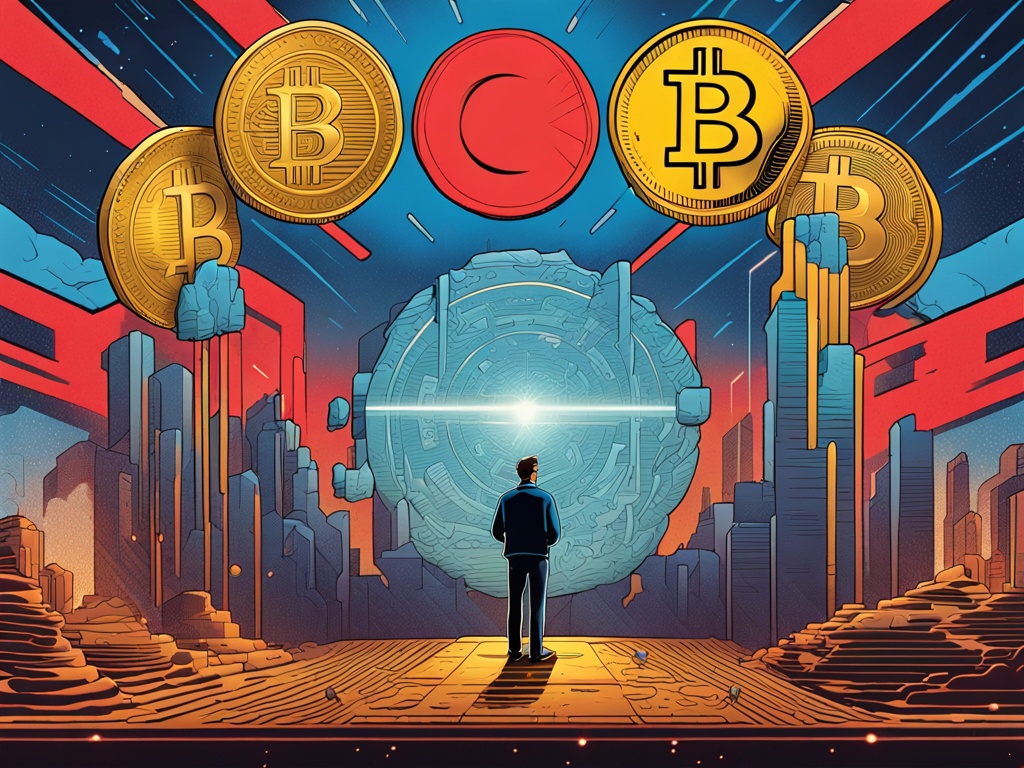Coinbase User Restrictions Spark Concerns Amid Market Surge 🚧
This year, several users of the cryptocurrency exchange platform Coinbase have raised alarms regarding unexpected account restrictions, raising questions about the company’s practices at a significant time for the crypto market.
As Bitcoin and the broader cryptocurrency market soar to new heights, reports indicate that Coinbase is imposing stringent limitations on its clientele. In response to the growing discontent, the Coinbase team took to social media to address the situation, although their response has not entirely alleviated users’ frustrations. Here’s a detailed overview of the current circumstances surrounding these notable restrictions.
Reports of Unjustified Limitations on Coinbase Accounts 🔒
Over the past few days, a multitude of Coinbase users have taken to social media to express their dissatisfaction with the limitations placed on their accounts. There have been multiple instances where accounts have been entirely locked, preventing users from transferring cryptocurrencies off the platform, without any clear violations of the company’s terms of service.
A significant number of these users have been loyal Coinbase customers, managing substantial crypto portfolios. This situation arises during a crucial moment for the crypto sector, marked by Bitcoin’s recent reawakening, surpassing the crucial milestone of $100,000.
Those affected have reached out to Coinbase’s customer service for clarification but have often been met with ambiguous or misleading responses. Additionally, users have experienced long response times from customer support, sometimes extending beyond five business days.
For instance, a user known as “Johnny Zcash” reported experiencing restrictions on crypto transfers despite maintaining a 12-year history on the platform and holding a portfolio worth seven figures. After numerous attempts to resolve the issue with Coinbase support, he managed to lift the block partially, but it has persisted for nearly nine months.
Security experts have criticized Coinbase for these actions. Nick Percoco, the security chief at competitor Kraken, commented on the distressing situation, suggesting the company is forcing users to choose between their financial autonomy and personal safety.
In addition, Taylor Monahan, lead security researcher at MetaMask, highlighted the inefficacy of Coinbase’s customer service, implying that the company’s availability hours seem restrictive for a globally operating platform.
Coinbase’s Response: Clarifying the Situation 🌐
In reaction to the flood of complaints, Coinbase has publicly addressed the allegations on social media, urging its users to disregard the prevailing FUD (Fear, Uncertainty, Doubt) and the misinformation that surrounds their service. In their communications, the company pointed out that the recent spate of account restrictions resulted from heightened fraud attempts, which have necessitated more rigorous Know Your Customer (KYC) verification processes than anticipated.
Since the recent USA elections, there has been an influx of previously inactive accounts becoming active once again, leading to an uptick in fraudulent activity targeting customer support. Hackers have been attempting to exploit the renewed interest in cryptocurrency, compelling Coinbase to implement stricter monitoring measures.
One crucial element that seems to contribute to these unwarranted restrictions is the detection of users employing VPNs or Ad Blockers. Scott Shapiro, Coinbase’s product director, explained that as attackers often utilize VPNs, the platform’s risk models treat the presence of such networks with suspicion, leading to potential account restrictions.
Shapiro clarified that the mere use of a VPN does not trigger an account flag; rather, it is usually a combination of factors—including accessing the account from unfamiliar devices or locations, coupled with significant transactions—which can result in an account being flagged for further review.
Understanding the Risks of Storing Crypto on Exchanges ⚖️
This situation serves as a reminder of the dangers associated with storing cryptocurrencies on centralized exchanges like Coinbase. While these platforms provide a user-friendly approach to engaging with digital assets, they can be a double-edged sword.
Amidst a thriving market where many users experience record profits, some find themselves unable to execute trades or withdraw funds due to unforeseen limitations. Although their concerns are valid, they often spend excessive time wrestling with Coinbase’s customer support and enduring tedious KYC verification processes.
The underlying issue transcends rising fraud attempts and VPN concerns; it highlights the risks of relying on intermediaries for asset custody. The original vision of cryptocurrencies was to empower users by eliminating such traditional banking intermediaries.
By entrusting an exchange with your private keys, you relinquish control over your cryptocurrency, which contradicts the fundamental principles underlying this digital currency movement. This sentiment can be encapsulated in the saying: “Not your keys, not your money.”
For users who deposit their assets on exchanges, access to their funds is no longer guaranteed. It’s crucial to internalize this lesson, often learned through personal experience, regardless of the initial excitement surrounding crypto investments.
Exploring Self-Custody: Pros and Cons 💼
Despite the cautionary tales surrounding centralized exchanges, it’s essential to recognize that self-custody may not suit everyone. Managing digital assets with private wallets necessitates a solid understanding of blockchain technology and the associated practices.
Occasionally, users may act hastily, assuming they possess the requisite knowledge, and inadvertently causing complications when transferring funds to their private wallets. A critical aspect to consider is the importance of securely storing the seed phrase essential for accessing one’s wallet, a task that may prove daunting for many individuals.
The sophistication of current hardware and software solutions can also deter those less familiar with technology. If users are unprepared, they risk falling victim to scams by engaging with malicious decentralized applications or scams prevalent in cyberspace.
The optimal path forward involves education and a commitment to understanding the tools that operate without reliance on centralized institutions. While new users may find engaging with crypto exchanges to be a logical starting point, it’s advisable to gradually explore private solutions over time.
It’s paramount to prioritize your financial independence and seek to learn about alternative custody methods instead of remaining complacent in the comfort of centralized platforms.
By taking these steps, you can work towards a more secure experience in the realm of cryptocurrency and reduce the likelihood of encountering issues associated with centralized exchanges.





 By
By
 By
By


 By
By
 By
By